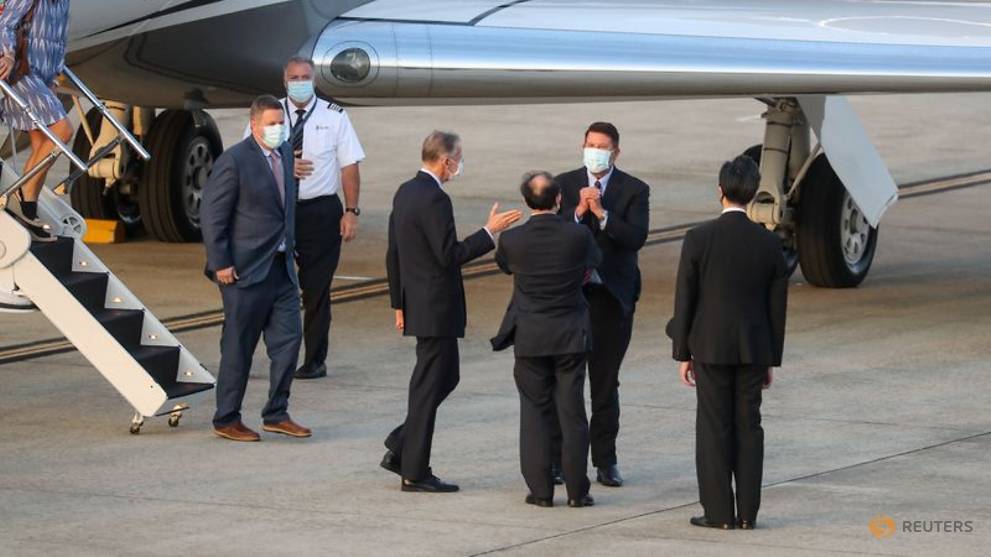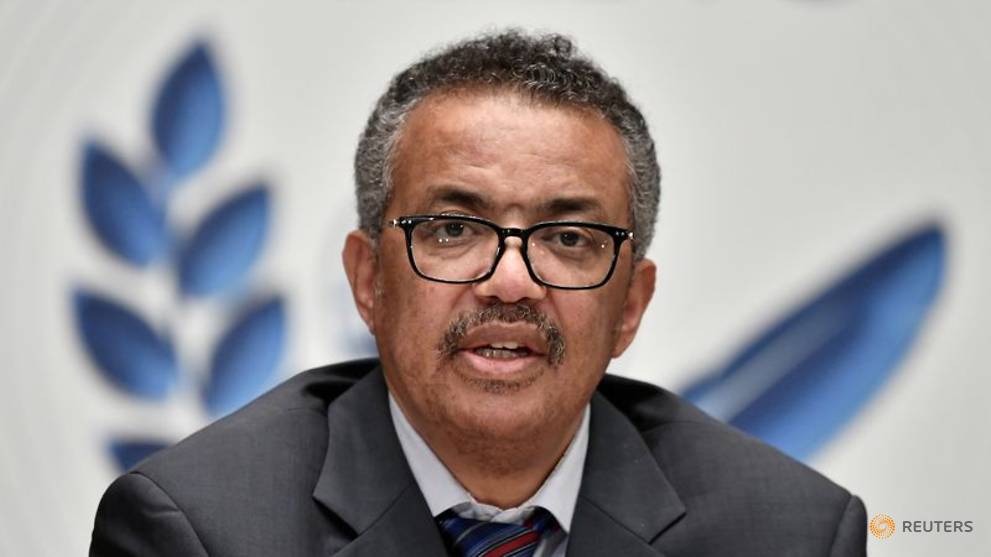
BEIJING: China began combat drills near the Taiwan Strait on Friday (Sep 18), the same day a senior US official began high-level meetings in Taipei in a move that has angered Beijing.
Beijing has watched with growing alarm the ever-closer relationship between Taipei and Washington, and has stepped up military exercises near the island, including two days of mass air and sea drills last week.
Chinese Defence Ministry spokesman Ren Guoqiang said Friday's drills, about which he gave no details, were taking place near the Taiwan Strait and involved the People's Liberation Army's eastern theatre command.
READ: China says military drills near Taiwan were a 'necessary action'
"They are a reasonable, necessary action aimed at the current situation in the Taiwan Strait and protecting national sovereignty and territorial integrity," Ren said.
Ren also warned that the Chinese military had "sufficient ability" to counter any external threat or challenge from Taiwan separatists.
Beijing considers Taiwan part of its territory and baulks at any recognition of Taiwan - which has been ruled separately from China since the end of a civil war in 1949.
Ren accused the United States of "frequently causing trouble" over Taiwan, which he said "is purely China's internal affairs, and we won't tolerate any external interference".
Trying to "use Taiwan to control China" or "rely on foreigners to build oneself up" is wishful thinking and doomed to be a dead end, he added.
"Those who play with fire will get burnt," he said.
TAIWAN SCRAMBLES JETS
According to Taipei's defence ministry, 18 Chinese aircraft - including bombers and fighters - entered Taiwan's southwest air defence identification zone (ADIZ) on Friday and also crossed the so-called median line that divides the Taiwan Strait.
The ministry said Taiwan's military "scrambled fighters, and deployed air defence missile system to monitor the activities".
The ministry showed a map of the flight paths of Chinese jets crossing the Taiwan Strait mid-line, which normally combat aircraft from both sides avoid passing through.
READ: China says will make 'necessary response' to US official's Taiwan visit
China's announcement came as US Undersecretary for Economic Affairs Keith Krach began the first full day of his visit to Taiwan in a low-key way, with no open media events on his agenda. He is the highest-ranking State Department official to visit in 40 years.
He is due to meet President Tsai Ing-wen later in the day, and on Saturday will attend a memorial service for late President Lee Teng-hui.
China had threatened to make a "necessary response" to the trip, straining already poor ties between Beijing and both Taipei and Washington. Sino-US relations have plummeted ahead of November's US presidential election.
Chinese fighter jets briefly crossed the mid-line of the Taiwan Strait last month as the US Health Secretary Alex Azar was in Taipei, and last week China carried out two days of large-scale drills off Taiwan's southwestern coast.
The US, like most countries, only has official ties with China, not Taiwan, though is the island's main arms supplier and most important international backer.
This week, the US ambassador to the United Nations had lunch with Taiwan's top envoy in New York. China's UN mission said it had lodged "stern representations" over the meeting.
https://news.google.com/__i/rss/rd/articles/CBMic2h0dHBzOi8vd3d3LmNoYW5uZWxuZXdzYXNpYS5jb20vbmV3cy9hc2lhL2NoaW5hLWhvbGRzLW1pbGl0YXJ5LWV4ZXJjaXNlcy1uZWFyLXRhaXdhbi1hcy11cy1kaXBsb21hdC12aXNpdHMtMTMxMjI4NTLSAQA?oc=5
2020-09-18 09:33:45Z
52781065580007


